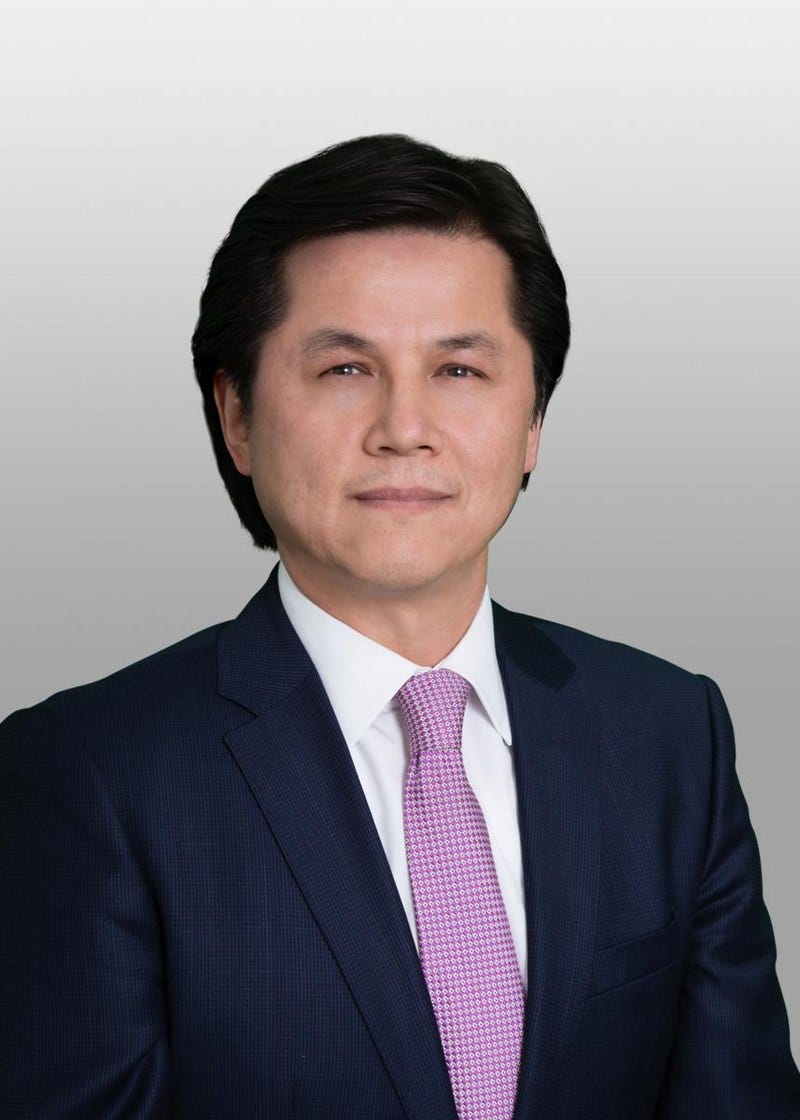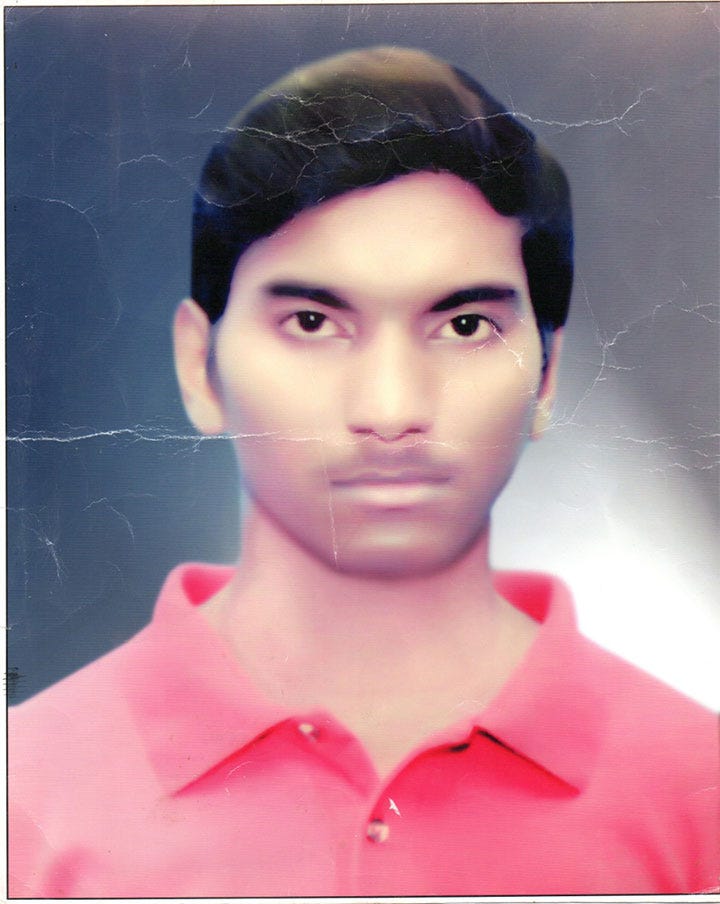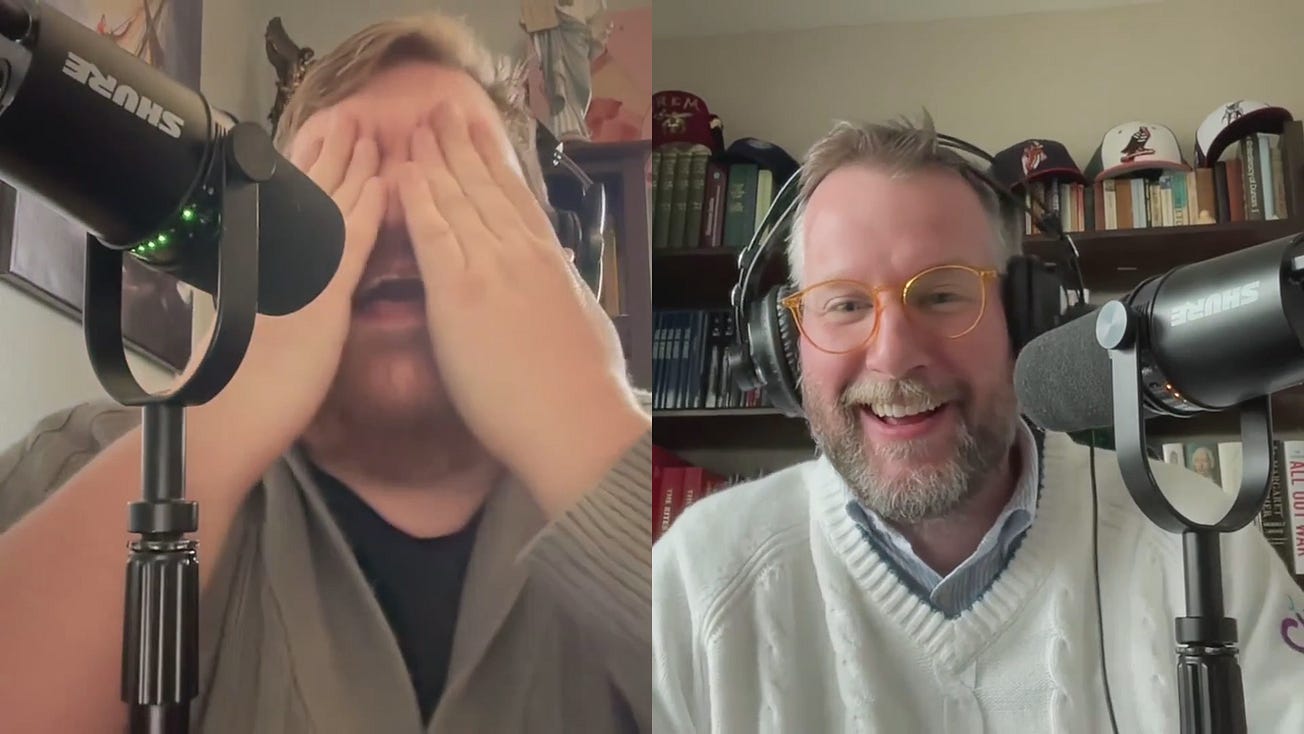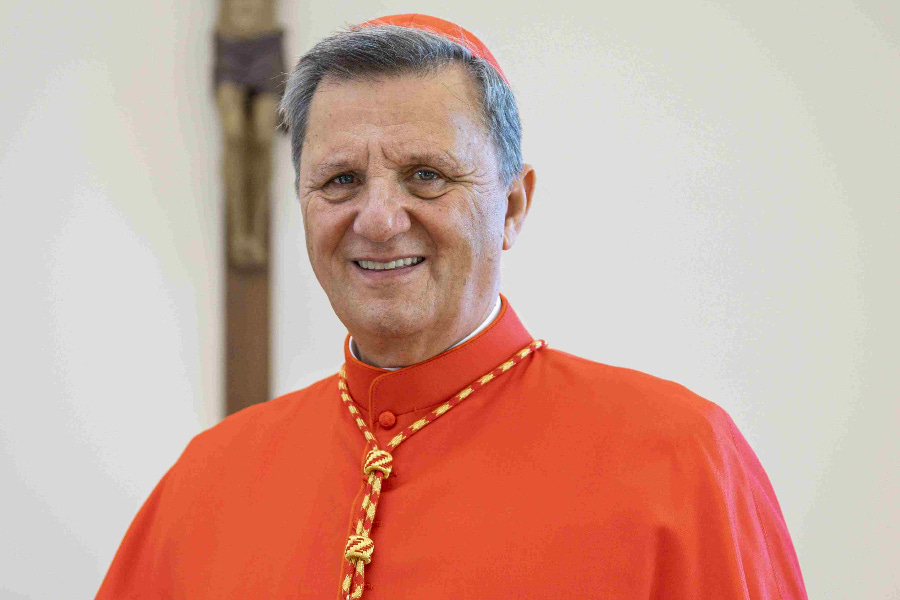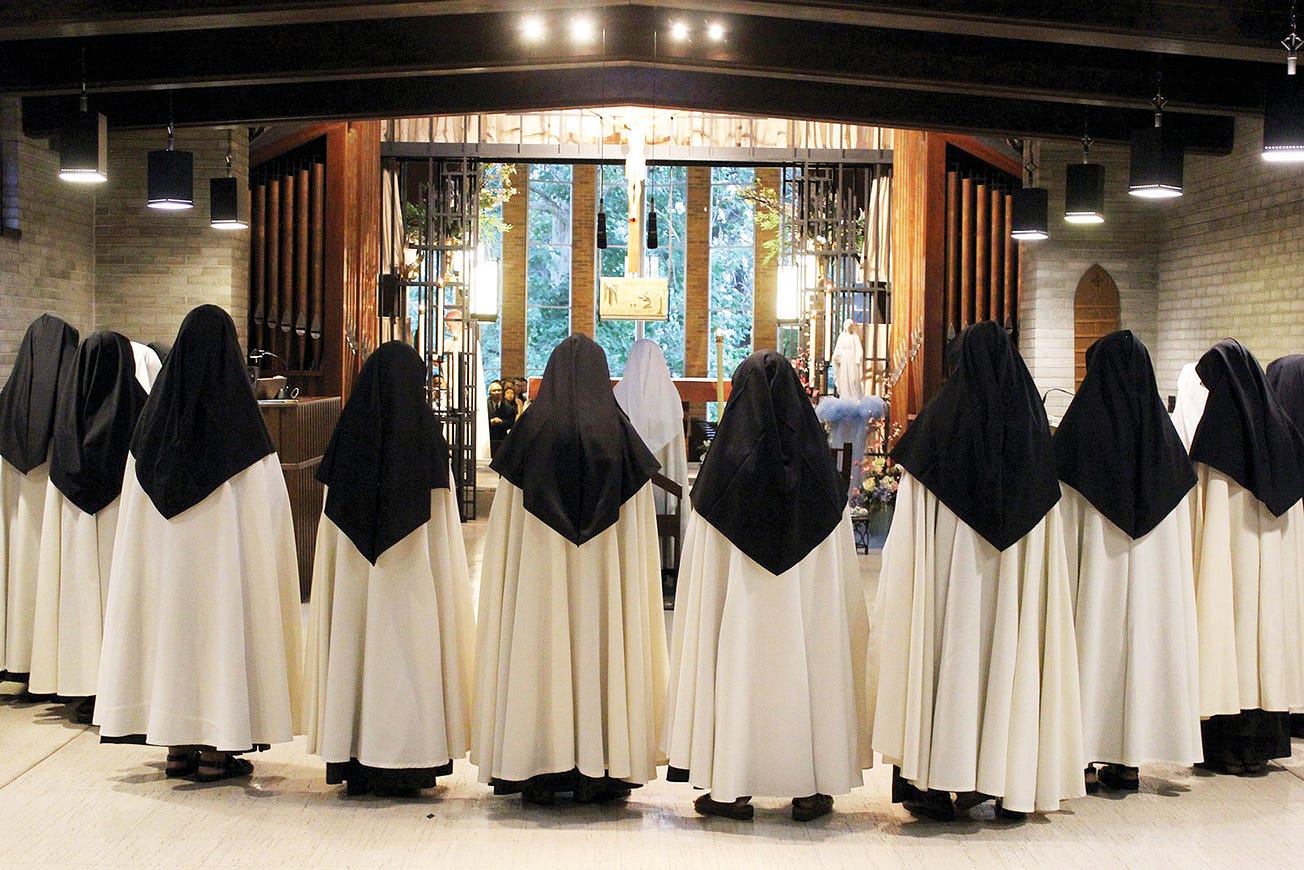In 2017, reports began to emerge of massive internment camps being operated in China’s Xinjiang Uyghur Autonomous Region. Satellite images confirmed the existence of the camps, while survivors reported that detainees were being subjected to systematic torture, indoctrination, forced sterilizations, and forced labor at the hands of the Chinese Communist Party.
Current estimates suggest that more than 1 million people are being detained in the camps, primarily Uyghurs, a Muslim ethnic minority in the region. The Chinese government denies that abuses are taking place within the camps, which it insists are “re-education camps” to offer vocational training and fight Islamist extremism.
In January 2021, the United States recognized China’s treatment of the Uyghurs as a genocide and begain imposing sanctions on China. But some human rights advocates say more needs to be done.
Nury Turkel was born in a re-education camp in China during the country’s Cultural Revolution. He was later granted asylum in the United States, and today, he is the first U.S.-educated Uyghur-American lawyer.
Turkel is a human rights advocate whose work has focused on responding to the plight of the Uyghurs in China. He is vice chair of the U.S. Commission on International Religious Freedom (USCIRF). Last month, he was awarded the inaugural Notre Dame Prize for Religious Liberty from the Notre Dame Law School Religious Liberty Initiative.
Turkel spoke with The Pillar about his assessment of the current situation in Xinjiang, the steps he thinks need to be taken, and where he sees reasons for hope. The interview is below. It has been edited for clarity and brevity.
The Pillar: It’s been nearly four years since Human Rights Watch published alarming reports of Uyghur detainment camps in Xinjiang, China. What’s your assessment of the current situation?
Commissioner Turkel: The tide is turning. There's an awakening within the halls of various government entities around the world. And we've seen some tangible actions taken by the United States government, both the previous administration and the current administration. Just [last week], the United States government added another 14 entities that are responsible or believed to be responsible for the ongoing genocide. That adds this on top of 74 punitive sanctions that both the Biden and Trump administration announced in the last two, three years. On top of that, we have several global Magnitsky sanctions being announced. We have a visa sanction. There's an executive order prohibiting U.S. citizens from investing in 59 Chinese entities. There was a fact sheet issued recently. There's a Withhold Release Order on solar panel imports from China.
And there’s a wider awakening around the world. We just saw the British parliament take additional steps last week. So did the European parliament. But it's not enough. From what we have been observing, the Chinese [government is] not showing that these measures have been effective, because we still have the camps running. The Chinese did not stand down from pressuring foreign businesses or global businesses that have been engaging in forced labor practices. They're also coming up with counter-sanction measures. This has to be something where global leadership and the international community come together with a little bit more of a strategic approach. The U.S. cannot do this alone. There's a lot that has already happened in the United States, but the other Western democracies, liberal democracies, are still lagging behind.
The Pillar: And why do you think that is?
Commissioner Turkel: Two reasons. One, lack of recognition. Initially, the international community used something quite asinine as an excuse, saying “This is Trump's thing.” They forgot that the threat coming from Beijing is an existential threat for the Uyghur people, but at the same time, is a rising authoritarianism threatening religious freedom, threatening privacy and civil liberties.
And there's also some people in our society that - specifically in think tanks and academia - think in academic terms, not in national-security terms. [They argue] that the United States should improve itself instead of speaking up. [But] we can chew gum and walk at the same time. We should always strive to make our union perfect. At the same time, we should also tackle the challenges coming our way.
And then the second thing is that China is doing a better job than the United States and our traditional allies with their narrative, with their soft power approaches, and also their bullying tactics. So this has created a serious problem, challenges for the United States to create a global consensus. We have a domestic bipartisan consensus, but we have not been able to create a global consensus on how to tackle Xi Jinping's China.
The Pillar: Everyone agrees the Holocaust was horrible and should never be allowed to happen again. Yet Americans are willingly continuing to buy products that may be made with slave labor by Uyghurs. Is this a lack of awareness? A lack of recognizing their humanity?
Commissioner Turkel: A couple of things. One, a lack of education. American people have gotten so used to benefitting from the cheap labor, cheap products on the store shelves in Walmart and Target and Costco. And they have not been fully informed that they are in a way complicit in the ongoing crime.
And then the two, corporate America has not done its job and has not really stepped up to the plate to tackle this. They have told the American consumers that American businesses have figured out the way to do business in China. But they're also caught up in a crossfire between the Chinese government orchestrated boycott [of companies that speak out about the Uyghurs] and also the pressure from Washington. The consumers have a way to change this behavior.
[There’s also] all the other big businesses...lobbying against the anti-Uyghur slavery bill in the United States Congress. When you talk to the members of Congress, they are frustrated that they're using lobbying. It's not illegal in our country to lobby [like this], but it's unconscionable. Several former members of the U.S. Congress have been helping these lobbying efforts. So the three things I could summarize, one is lack of consumer awareness. And then two, corporate complicity. And then three, lack of legal tools, regulatory oversight.
The Pillar: What has your work on behalf of the Uyghurs focused on?
Commissioner Turkel: I only have limited time and resources. Time is not on our side. We're dealing with an ongoing enslavement, ongoing genocide. So I have been advocating with the support of my friends and allies in government and society to come up with strong policy responses. One major accomplishment was Secretary [of State Mike] Pompeo's announcement that the atrocity amounts to genocide and the incoming secretary of state, [Antony] Blinken's endorsement right on the spot on the same day that it would [also] be his judgment [that this was a genocide]. That was a major milestone. The Chinese...miscalculated that once the Trump administration was gone, the Biden folks would come in and then just reverse everything. But we haven't seen that. This is something that I am very proud of about my country - the people in power recognize this. It has become a bipartisan issue, both in the executive branch and the legislative branch.
Policy response is something that is so near and dear to me because without a strong policy response, we will have two disastrous outcomes. One, no one will take us seriously. We will lose moral authority. And two, we not only have a treaty obligation, we also have a legal obligation. Both China and the United States are signatories to the genocide convention. China is violating, and the U.S. is fulfilling its obligation. So, if you fail to act, then the treaty obligation becomes meaningless, especially now in the face of Russia and China's attempt to upend much of the normalcy around the world.
So our U.S. leadership, U.S. bold action, a clear-eyed strategic approach, and coordinated responses are the things that may change the landscape. At the end of the day, this is about who we are as a country, as a civilization. This is about our economic interests. This is about our moral values. This is about our commitment to protect religious freedom. When a government targets a religious and ethnic minority, they cannot defend themselves. They end up in a disastrous outcome. We have seen it repeatedly in history. Just in the last 10 years alone, the international community has experienced three genocidal actions: the Yazidis, the Rohingyas, and now the Uyghurs. How many more do we have to see? The U.S. has a very critical role in a situation like this, to say, “No, not on our watch. This is not going to happen.” That's the type of message that I'm advocating.
The Pillar: What is the single most important step that could be made at this point to help the Uyghurs?
Commissioner Turkel: One, the United States government should make it clear that the U.S. will not be officially showing up at the upcoming winter Olympics in Beijing next year. That would be a tragic mistake. That would be a repeat of the historic mistakes that the United States and others made in similar circumstances. In 1936, 49 countries, including the United States, showed up at the Berlin Olympics. Three years later, Hitler, emboldened and encouraged, started invading Europe.
Xi Jinping is earnest, as President Biden told Congress, that he wants to rule the world. Xi Jinping is earnest that he wants to upend democratic norms that we all love and cherish and replace them with his own dark governing system. So this is very, very important. We need to bring in, specifically, countries that are going to participate in the winter Olympics - Canada, Norway, Sweden, Denmark, Finland, at least, to diplomatically boycott this. Or postpone next year's Olympics. That's one thing.
And second, I think the United States, using our partnership with liberal democracies, should look into ways to hold the bad actors to account. They're getting away. This is not the first time that the bad actors are getting away with the crimes that they committed. We need to draw a line in the sand and say, “This is not going to happen again.” We need to have a legal mechanism. This has not been talked about...If you don't bring justice to those bad actors, we'll continue to see these kinds of bad behaviors. It's very dangerous... Look at how much support and influence still that Russia and China can garner. Any countries that the United States or Western democracies have a problem with, in the pockets of Russia and China. So we have to come up with a way to push back. When Russia invaded Crimea in broad daylight, the international community didn't do anything. That sent a bad signal to Xi Jinping...So we have to be very, very strategic, bold, and clear... I want to see bold leadership. I want to see legal democracies coming together, a tangible, specific, concerted, coordinated response.
And also, one other thing that needs to continue to happen is “naming and shaming.” The bad actors care so much about “naming and shaming”...They do care. Case in point, the governor of Hong Kong, Carrie Lam, cannot use a credit card. She was complaining that since the U.S. sanction, she cannot even use the bank. That's so significant. This woman is responsible for China’s successful upending of Hong Kong democracy. And she was sanctioned, and she cannot even use a bank. It is significant.
And recently, the Washington Post reported a major supplier of yarn in Xinjiang complaining about losing a hundred million dollars in revenue and profits because of the sanctions. That’s just one company. We're talking about 83 global brands [that have been connected to Uyghur labor]. So targeted sanctions, Olympic boycott or relocation, and looking for legal mechanisms to hold those bad actors to account would be on my top to-do list.
The Pillar: Neither Pope Francis nor the Holy See have publicly commented in an official capacity on the situation, although the pope commented in passing in a book. What is the role of religious leaders in situations like this?
Commissioner Turkel: If you allow this to happen to one religious group, this will happen to others as well. We're all interconnected. Jewish groups have been very vocal. They have done a number of things. The chief rabbi of the UK spoke at a major event [last Saturday], specifically on the Uyghur genocide. I co-authored an Op-Ed at Newsweek magazine during the Passover holiday. The Southern Baptist Convention, with 14-plus million members, recently recognized the atrocities of the genocide.
But the Vatican has been silent. It's disturbing. Here's why it's disturbing. Catholics are also a persecuted minority throughout history. They know how it works. Number two, they have leverage to make a difference. When Pope Francis speaks, the world listens, and he's not doing it. And also three, there's a political will in the United States to work with them to make it a coordinated issue. Last year, Secretary Pompeo went to the Vatican and brought this issue up. He made a speech at the Holy See. But we have not been getting any responses. So I don't know how this can be done. Maybe with the involvement of some Catholic leaders.
[At the Notre Dame Religious Liberty Initiative ceremony], I think Father Jenkins was sitting next to me, and he was very clear on his position. He was very sympathetic. I was literally in tears when I walked up to the stage. How wonderful that a major Catholic university in the world honors a Muslim cause...I don't usually have a problem expressing myself, but I was literally speechless. I think this event two weeks ago may bring some desirable outcomes from the Catholic community.
The Pillar: Do you see reason for hope in the coming months?
Commissioner Turkel: I do. I'm cautiously optimistic. I'm by nature a very optimistic person. The oppressor wants you to be depressed. I refuse to be depressed. I refuse to be dehumanized. I refuse to be mistreated because I'm a free person. I have platforms, I have the brain, I have the mental clarity to speak up. It's very clear, right versus wrong. This is a very clear case, and we're dealing with a genocidal action. We're dealing with a systematic, deliberate religious persecution. Not only in China, all around the world. There's a hatred towards religious practitioners all around the world. But at the same time, I'm very positive, very hopeful that people are looking at these issues a little bit more with profound interest, particularly at the governmental level. I deal with Congress, I work with Congress. So listening to the members of Congress from both parties gives me a lot of hope that we might be able to stop this, at least, in this one instance. But the challenges are monumental.

